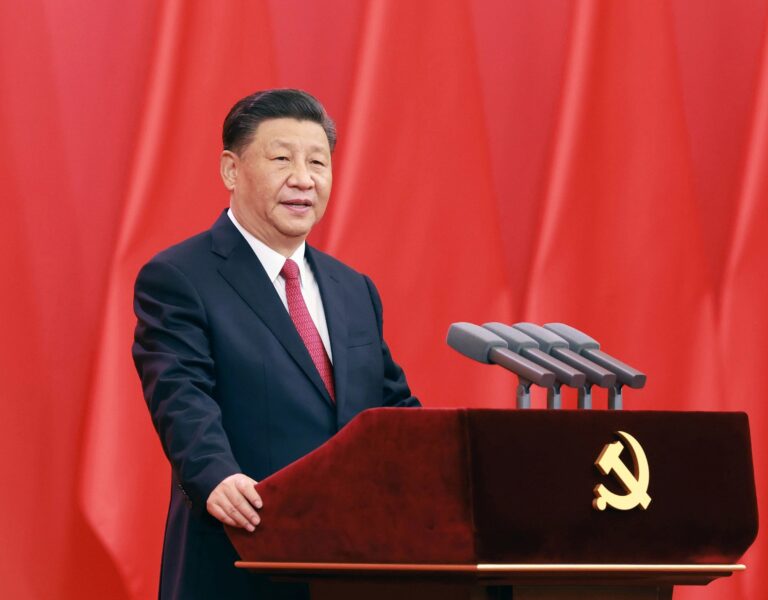Beijing sees the centenary of China in 2049 as a global triumph for powerful China, which most likely involves restoring historical integrity with the territories Russia had annexed. Revision by Xi Jinping means the shame of historic territorial losses should be wiped off. He brought communist rule to Hong Kong, and seeks the same for Taiwan. But China won’t succeed in full restoration of borders without the territories that Moscow currently controls.
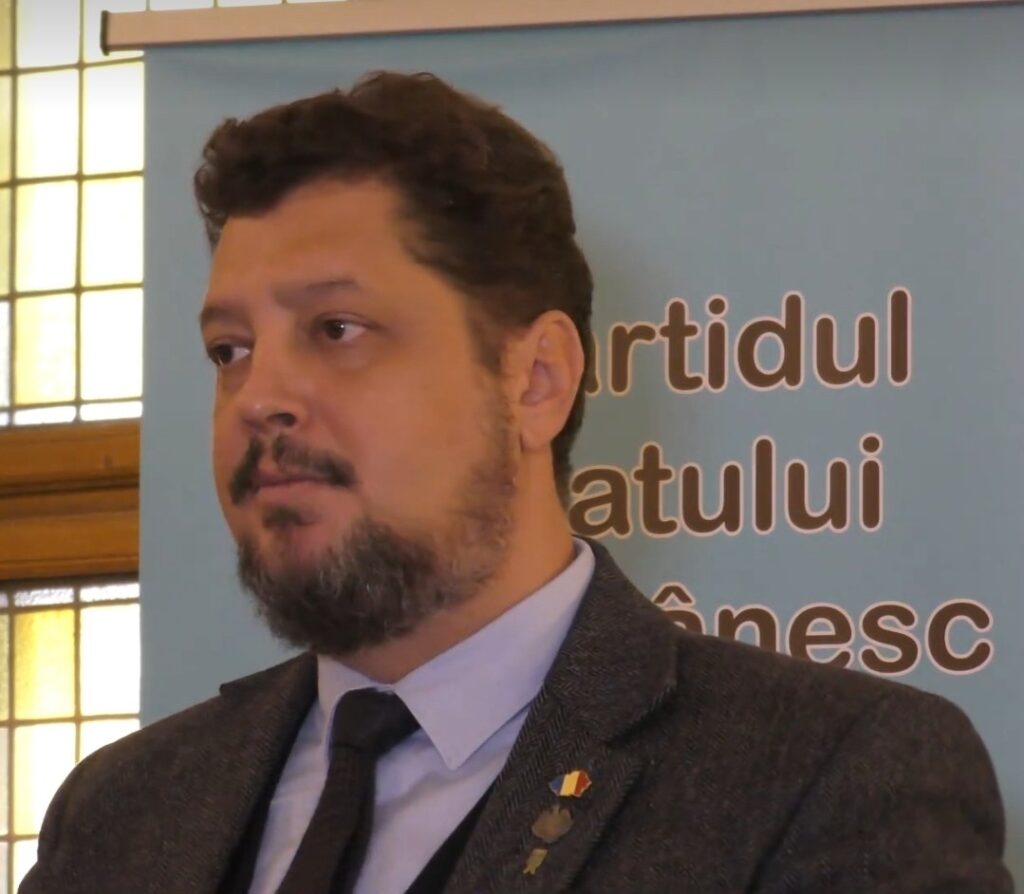
The Kremlin is keen on historical interpretation, and some nationalist groups in some countries are gearing up to this trend, as RLI analysts predicted. Tucker Carlson’s interview gave Chinese nationalists an idea to demand the port city of Vladivostok back. The nationalists used the Kremlin’s rhetoric, on Weibo, to voice China’s territorial claims.

More on this story: Russia still on with effort to meddle in U.S. elections
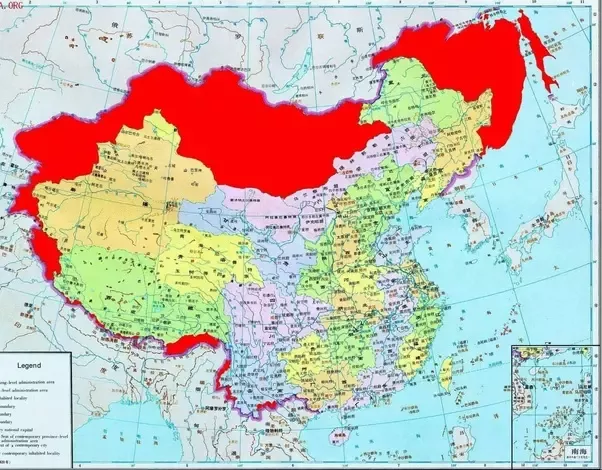
China has historical claims to Vladivostok, as it was handed over to Imperial Russia in 1860 under the Treaty of Beijing. The treaty provided that the border between China and Russia was along the Amur and Ussuri rivers, with Russia getting access to Vladivostok, a key port city in the Far East. Some Chinese nationalists have formed a movement in recent years demanding that Russia return Vladivostok to China. These demands turned even more heated following Vladimir Putin’s interview.
“If we speak about history, Russia should give us back Vladivostok and the vast territory that was stolen over a hundred years ago,” Robert Wu from China said on Weibo. These words are not written by ‘wumao’ trolls who are paid to spread government propaganda, but come from patriotic ‘zi gan wu’ bloggers who do that for free. Chinese elites increasingly support the idea of abandoning passive foreign policy by Deng Xiaoping.
Another Chinese nationalist noted on Weibo that once there were lands in Russia controlled by Chinese empires, three times as large as Great Britain.
“If we go back to history, current Mongolia and the Siberian lands in Russia were part of China during the Tang Dynasty, with the center in Xi’an,” a Weibo user wrote. The Tang Dynasty goes back to the 7th century.
Other Chinese experts voiced doubts about the historical analogy Putin used in his interview. We believe official Beijing has sanctioned and supports the feedback by Chinese nationalists to Carlson’s interview. Russia, which seeks China’s support at a critical time, humiliates China, as remains silent on the issue of historical Chinese land control. That means China is unable to revive national pride based on a range of symbols with the territorial issue of the Far East unresolved. Russia does not match the concept of global China, as it can give Beijing nothing but resources, with most of them concentrated in the areas that historically belong to China.
After a century and a half in decline, the Chinese Communist Party (CCP) believes it has the historical responsibility to reinvigorate the country and contribute to “China’s second rise.” The nationalist discourse in China was dominated by the Chinese government for a long time, and the essential idea remains: supporting the CCP is loving the country. However, a new interpretation of “China First” is now arising among popular nationalists, which indicates the growing conflict between the Party and the people. As Beijing’s ambition to rewrite the world order with the Kremlin poses a clear threat to the West, the neo-nationalist sentiment consists of great potential to break the China-Russia alliance.
The United States has been using sanctions to break the Russia-China coalition, but they have also further deteriorated the US-China relationship. Washington needs new measures.
The economic measures implemented by the US and its European allies are not complete failures. Sanctions accelerated the development of a strong force within China’s citizenry. The rising political polarity in Chinese society has the potential to destroy its alliance with Russia. However, for the Chinese people, it is more than choosing a side between the US and Russia. Neo-popular nationalist sentiment thrived as a realistic approach to urgent problems impeding Chinese development.
A distinction can be drawn between Chinese neo-nationalism and “state-controlled nationalism.” The CCP foments state-controlled nationalism to legitimize its rule while the cohesive force of communist ideologies is diminishing. For a long time, the government dominated the nationalist discourses. However, nationalism under the government’s guidance is now centered on Taiwan’s integration, Anti-Americanism, Anti-Japanese fighting and cracking down on Western dominance. The alliance with Russia, explained by the government under this context, is indispensable for confronting the Western hegemon. The Party intends to further unite other countries with its global market dominance and the generous, assistance-like projects to address economic sanctions from the West and stress China’s role as the new world leader. The people have increasingly questioned government spending from the Belt and Road Initiatives and the Asian Infrastructure Investment Bank’s investments to contracts of crude oil. They have contested the worthiness of these magnificent projects abroad, especially when 25% of the Chinese population earns less than $6.85 per day, according to the World Bank.
No matter how the CCP polishes these “win-win” relationships, people with neo-nationalist sentiment constantly believe the payoff is incomparable to the dedication. They believe that China no longer needs to buy recognition and acknowledgment from other countries. Contemporary Chinese nationalism is no longer a product of top-down Party propaganda but a bottom-up or mass movement.Popular nationalists are not puppets in the hands of Communist elites and now regularly speak of China and the Chinese race without reference to the Party. The neo-nationalist sentiment has created a backlash against the government’s decisions with the growing conflicts between the Party and the people.
Neo-nationalists encourage the government to focus on the country’s domestic economies and national defense development, believing it should be more discreet in undertaking external affairs. Meanwhile, neo-nationalists are convinced that the CCP is often immersed in flattery from other regimes or controversies on the responsibilities of a global superpower, and as a result, it fails to make the best decision for its people.
Neo-nationalists are less attracted to such grand narratives and consider every country a competitor. The appeal for restricted technology and economic assistance to Russia thrived from the concern that Russia, like North Korea, will soon become another burden for China. While this claim was initially favored by younger generations, it is now gaining popularity among the most rigid Communist party members, including retired government officials and professors from public universities.
These concerns are valid as the limits of China and Russia’s so-called “no limits” partnership have become increasingly evident. The partnership has started to affect China’s integration with the global market. Business owners in China face more obstacles in exporting and importing, and foreign patents have become harder to obtain. With the critical transition of Chinese industries from labor-intensive to technology-incentive – reaching its peak in recent years – the irreplaceable significance of foreign technologies in the development of Chinese national industry requires the government to reconcile with the United States. Dissociating with Russia will relieve sanctions on Chinese high-tech enterprises.
Unlike the old patriotic belief of Chinese superiority, neo-nationalists nowadays are the harshest critics of the so-called “Wolf Warrior Diplomacy,” named after the Chinese patriotic movie Wolf Warrior. The new foreign minister and former ambassador to the US, Qin Gang, recently reinterpreted Wolf Warrior Diplomacy as “dancing with wolves:” China was pushed into defensive positions by Western attacks. Instead of gaining “face” for China before international societies – as a tool to win prestige and respect – the CCP’s strategy negatively influenced ordinary people abroad.
The CCP leadership is extremely sensitive to potential threats from the public collectively. For the CCP, the neo-nationalist appeal is still under control for several reasons:
- Neo-nationalists are not political activists; on the contrary, they cannot face the consequences of disobedience such as losing jobs, being detained by the police, travel restrictions, etc. Moreover, they are well aware of the “red lines” of expressing disapproval. They often conduct a vibrant discussion on the Chinese internet but are reluctant to protest in real life. It is almost impossible for nationwide movements, such as Black Lives Matter in the US, to occur in China due to authoritarian rule and the disorganization of opposition forces.
- Neo-nationalists are even more hesitant to protest against political issues than social ones.
- The CCP has successful experiences in managing internet public opinion.
The state-controlled media and nationalists who have almost “blind deference” to the Party have attempted to erode the negative impacts by questioning dissidents’ motivations.
Chinese politics is an endless trick, Sun Tzu said. Chinese history textbooks emphasize that most of Siberia, with Western Siberia right up to the Tomsk region, is a Chinese territory, lost temporarily. And Chinese bookstores offer geographic maps where Russia’s territory (Primorye, Sakhalin Island, Eastern Siberia, etc.) is shown as allegedly belonging to China since the first Qin dynasty in the 3rd century BC.
Mao Zedong said ‘Russia seized too much land… More than 100 years ago, they cut off the lands to the east of Lake Baikal, including Boli (Khabarovsk), Haishenwai (Vladivostok), and the Kamchatka Peninsula. This account is still unpaid; we have yet to settle the bill.’ Ex-President of China claims Russia should give more than 1.5 million square kilometers back to China.
Deng Xiaoping, the leader of Chinese reforms, also spoke about historical ‘injustice’ in the 90s: “In the second half of the 19th century, Imperial Russia forced the rulers of the Qing dynasty of China to conclude some unequal treaties. That way, Imperial Russia seized more than one and a half million sq km of Chinese territory altogether.”
The integration of these newly Russian territories was a chaotic and often bloody process: as many as 5,000 Qing subjects were killed in the 1900 Blagoveshchensk Massacre when local Russian authorities, fearing a spread of the anti-foreign Boxer Uprising, forced them to cross the border at the Amur River, with most drowning in the attempt or being cut down as they tried to flee. Later under Stalin, thousands of ethnic Chinese who lived in the Russian Far East were forcibly deported, mostly to forced labor camps in the Arctic.
China currently claims, first of all, the Amur Region, the Jewish Autonomous Region, the south of the Khabarovsk Territory, the Primorsky Territory, the Republic of Tyva, parts of the Trans-Baikal Territory and Buryatia.
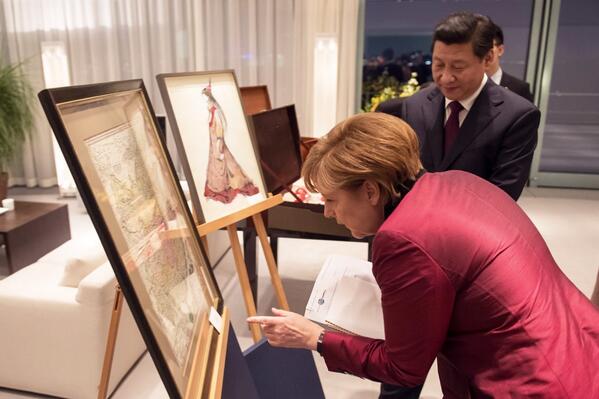
When Chinese President Xi Jinping visited Germany in 2014, Chancellor Angela Merkel presented him with ‘the first precise map of China,’ drawn in Germany in 1735. This map shows the Far East, the Uryankhay Territory (Tyva), a large part of Siberia and the South China Sea with all the islands as Chinese territory.
There are three ways to approach current strategy of China’s territorial expansion:
1. China gets Russian territories after ‘border demarcation’ as a way to ‘strengthen Russia-China strategic partnership.’

Putin, in October 2004, voluntarily handed over the Tarabarov Islands, parts of Bolshoy Ussuriysky Island in the Khabarovsk Territory, and Bolshoy Island in the Chita Region. All these islands were of strategic importance.
2. Long-term official lease of Russian territories. As of the end of 2020, China had obtained a lease for at least 5 million hectares of Russian land for 49-70 years.
Beijing pays great attention to establishing compact Chinese settlements in Russian border areas.
3. Illegal long-term territorial expansion. It happens at the intersection of activity by gray Chinese business and Chinese intelligence, mainly in such forms as:
Chinese military men infiltrate as workforce and marry Russian women. China’s secret agencies take advantage of corruption in Russia and use illegal schemes to be legalized as citizens.
Beijing infiltrates local governments and plants ‘agents of influence’ there. The Kremlin has set up priority development areas, with Russian legislation limited, where China has lobbied for the benefit of their tenants. That means China is going to step up expansion of eastern Russia. With China officially not having territorial claims against Russia, Chinese long-term strategy provides for the return of its historical territories. Russia’s war in Ukraine has exhausted military resources in regions bordering China, which makes these areas extremely vulnerable for the next 5 years. Weak Russia is good for China, as the moment of China’s territorial integrity restoration gets closer.
The United States and the West should not be afraid of China’s expansion into the Far Eastern provinces of Russia. With poor economy, infrastructure collapse and lack of population, it will take a long time for China to develop these territories. Unlike Russia, Beijing will be motivated to show the economic development of the Far East under its control.Russia’s military invasion of Ukraine gave Beijing every reason to justify claims for Chinese territories annexed by Russia, as part of historic revision.
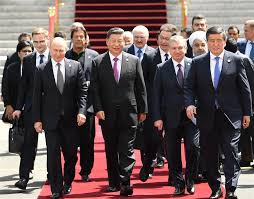
More on this story: China in Central Asia: Russia Driven Out
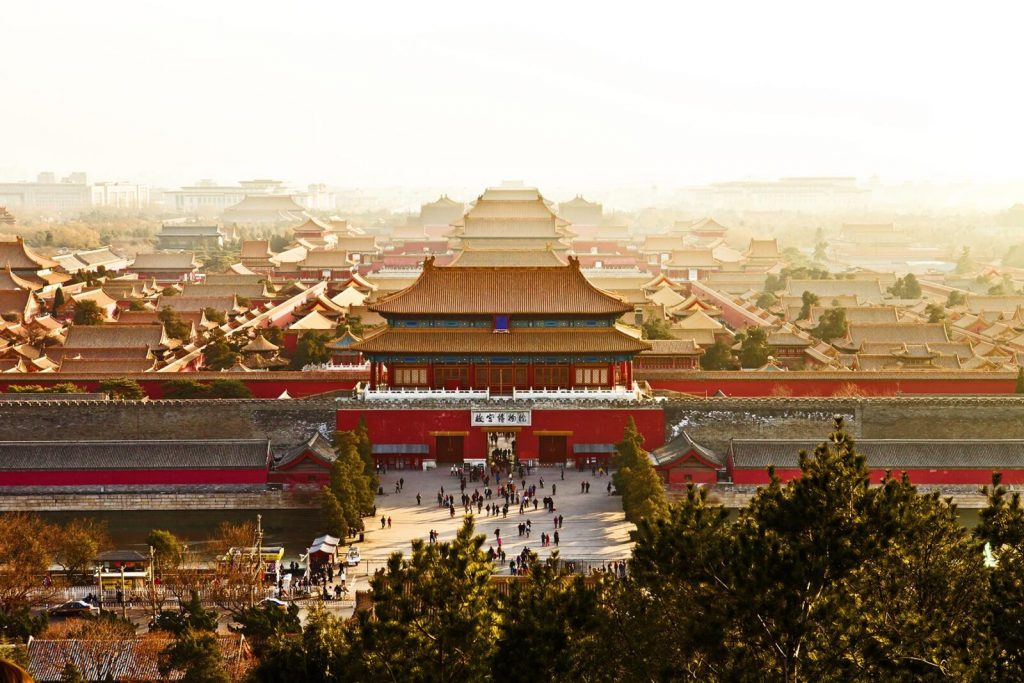
More on this story: China: how to exchange the host and the guest roles
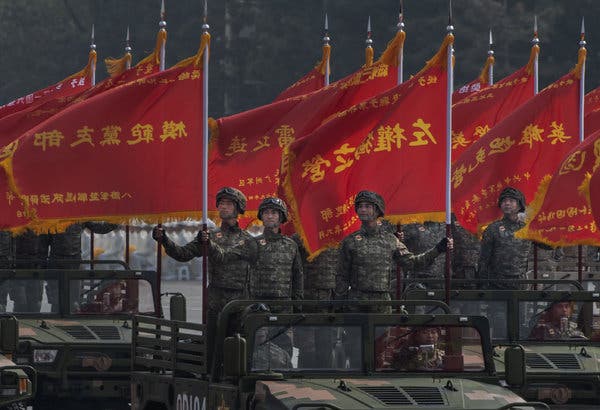
More on this story: Prospects for China’s further worldwide expansion


